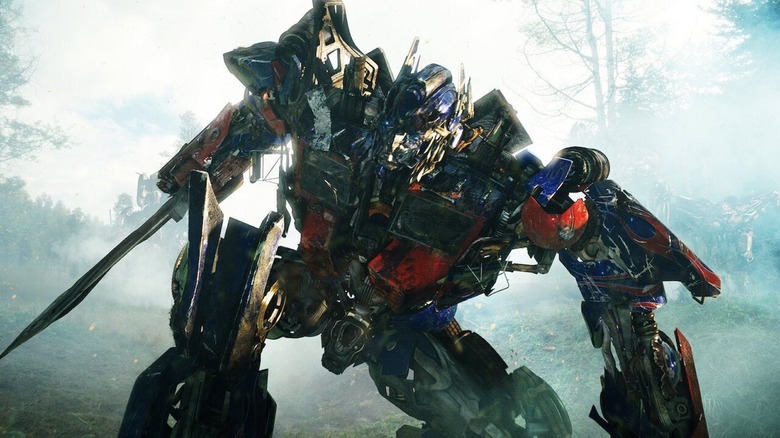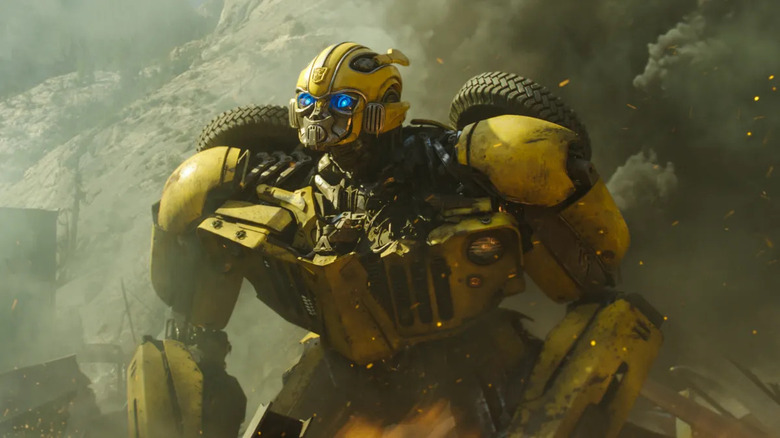Transformers' Writers Had To Hide An Early 'Kiddie' Draft From Michael Bay
Say what you will about Michael Bay or the "Transformers" series, but that first movie rules. It is peak '00s, with hot cars, hot girls, hot weather that makes everyone super sweaty, very dumb crude humor, slick camerawork, lots of military imagery and references to the war in the Middle East. And, of course, who can forget the masterpiece of edgy '00s cinema that is the ending, where Optimus Prime delivers the first of his many, speeches about Autobots being stuck on earth while Linkin Park's "What I've Done" blasts through the speakers, an image so effective and memorable that it resurfaced as a meme (and honestly fits every movie).
In a behind-the-scenes documentary about the making of the 2007 live-action "Transformers," Steven Spielberg, who was instrumental in Bay getting the job, said, "Michael Bay was born to direct 'Transformers.' He was the perfect fit for this concept," and he's absolutely right. Bay is one of our biggest maximalist filmmakers, one that never really grew out of his music video-making days, but instead decided that every movie should be a series of music videos, with every scene doing everything possible to hold the audience's attention and give them something memorable. Sure, he has questionable optics when it comes to women, the military, and minorities, but it's hard to argue against his visual effectiveness, with the franchise becoming hugely successful and without the need for a shared universe.
And yet, we almost had a very different movie. It's hard to remember that this movie was still produced by Spielberg. At one point the film was going to be more in line with Amblin movies of the '80s, but Michael Bay was so against it that the writers hid the more "kiddie" draft from the director.
Autobots, roll out
Though the original "Transformers" cartoon had little to no human characters, Spielberg and writers Alex Kurtzman and Robert Orci believed the core of the film should be a boy and his car, with movies like "E.T." providing inspiration to Kurtzman "for the way that Elliott became the audience and how we were experiencing the wonder and the magic of E.T. coming to earth." This makes sense when looked through an Amblin tone, but Michael Bay wanted more; he wasn't interested in a toy movie for kids.
In Bay's own words, he didn't just want to make a nostalgia play aimed at people who wanted to see toys on screen, he wanted to make the movie "really real and edgy." His answer was the whole subplot about the military. "I knew I wanted to make it very credible and serious, and I told these guys I wanted to broaden it out and make it so that it had a little more global impact." In the movie, we constantly cut between the story of Sam Witwicky (member of the ancient Order of the Witwiccans, a secret organization of people that collaborated with transformers to change human history, which also included Shakespeare, Isaac Newton, Galileo, Darwin and Catherine the Great) and the story of a group of soldiers stranded in the Middle East who join the fight against the Decepticons, which is where the grittier, more violent aspects of the movie come in.
Does that plot help the film significantly? That is debatable, but there is no mistake that Michael Bay did manage to make this film his own, and managed to leave no doubt that this was not a toy movie for the Amblin crowd.

